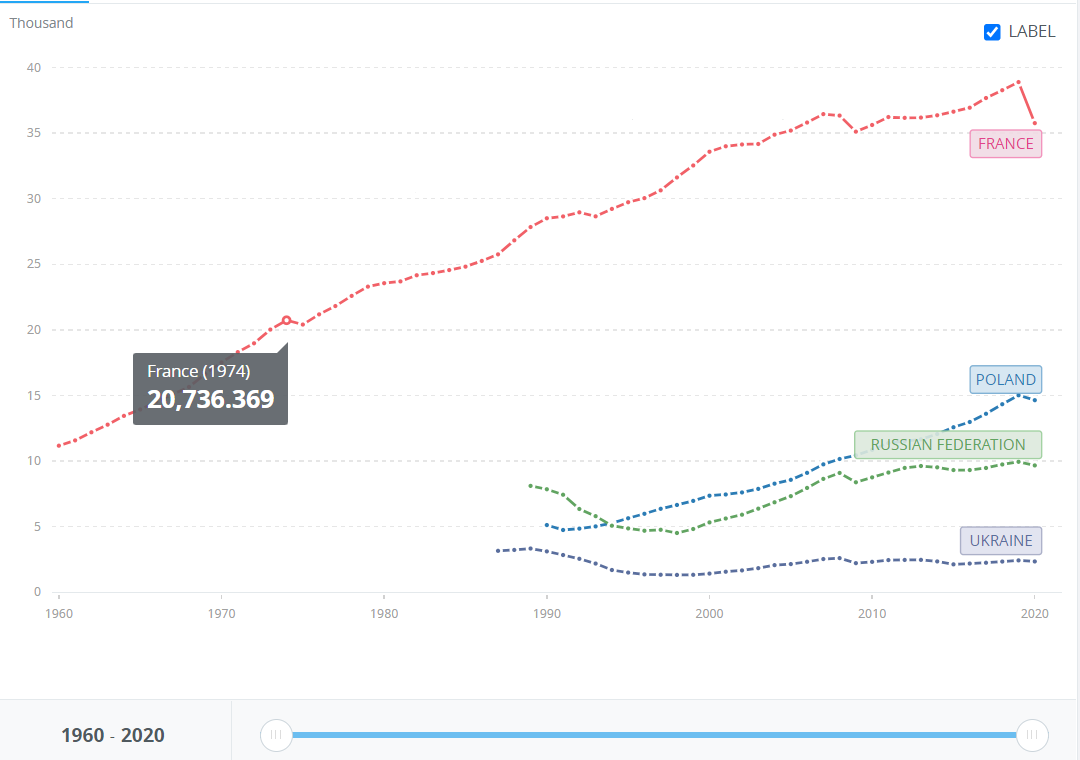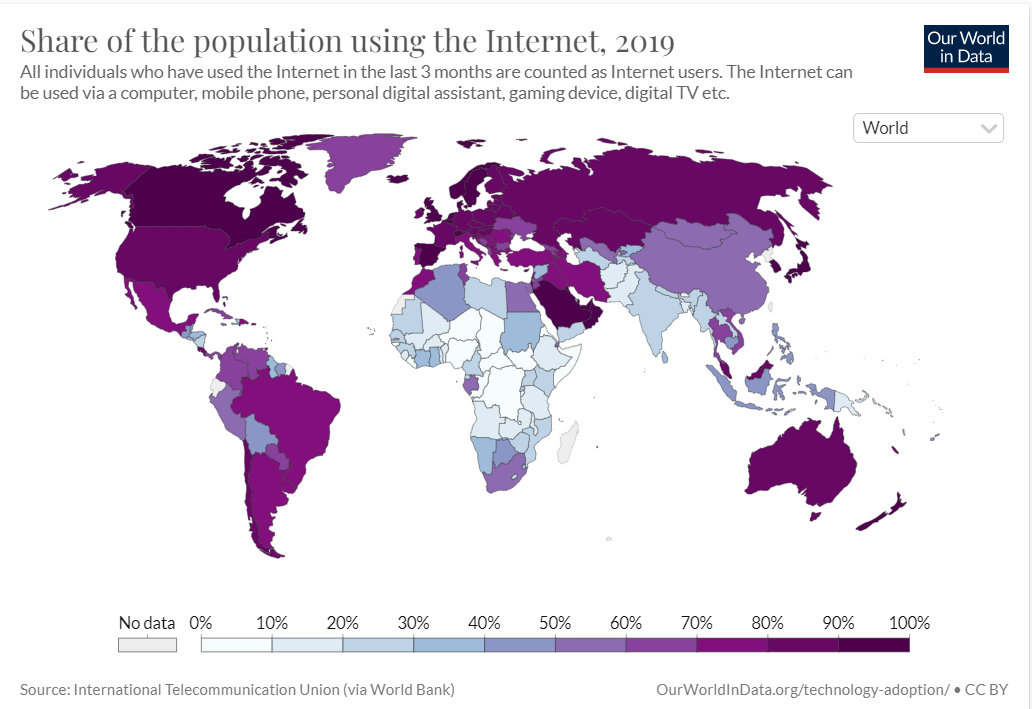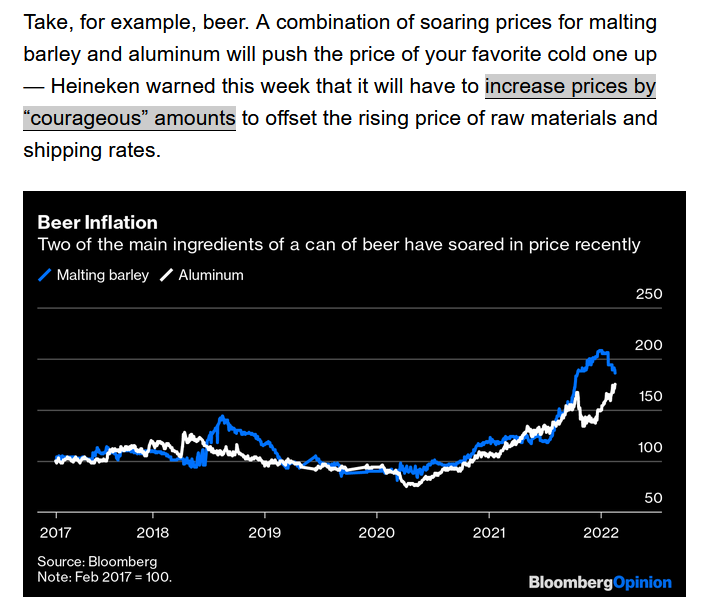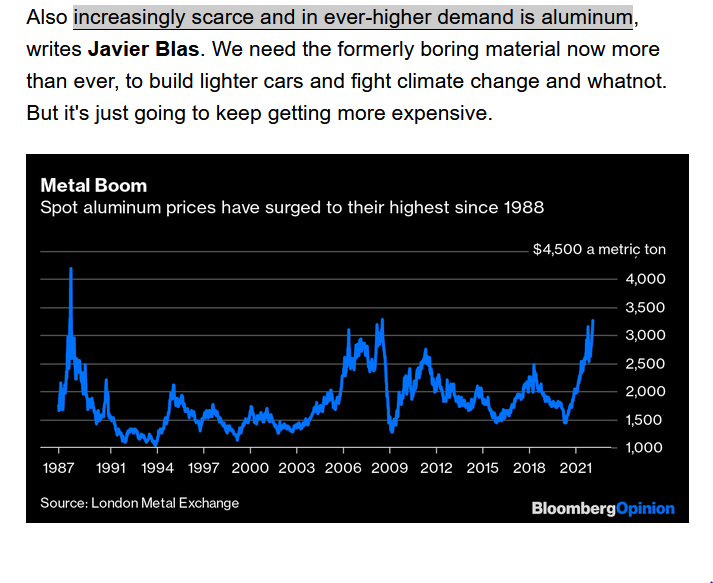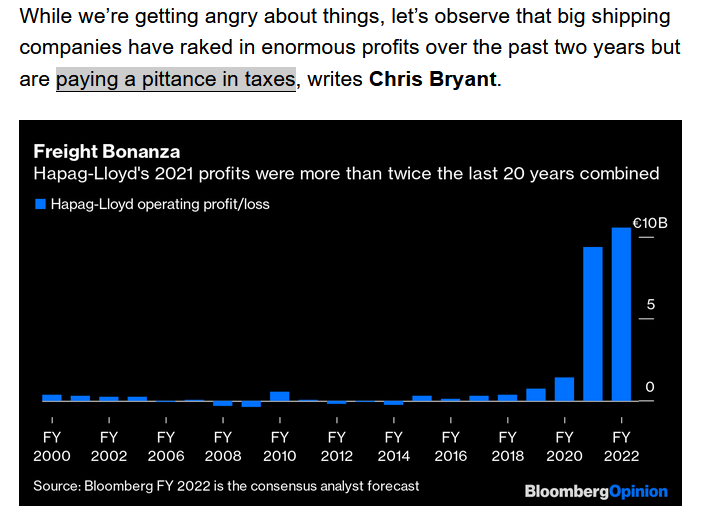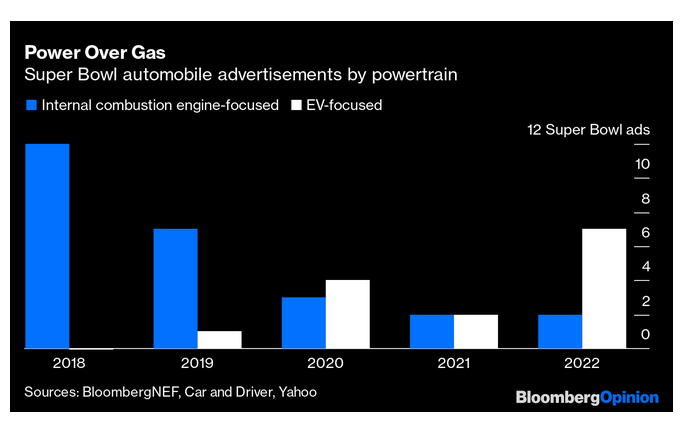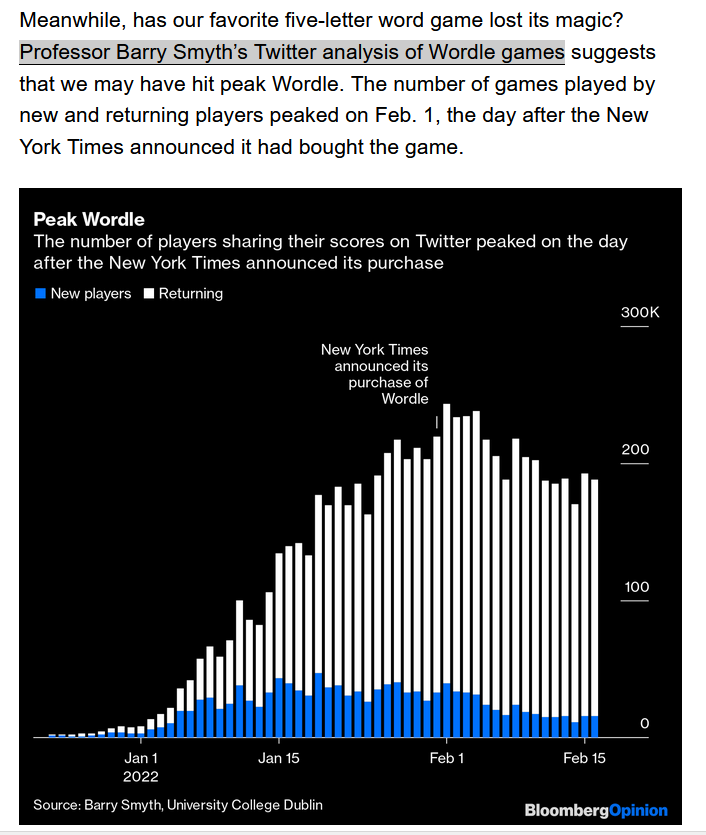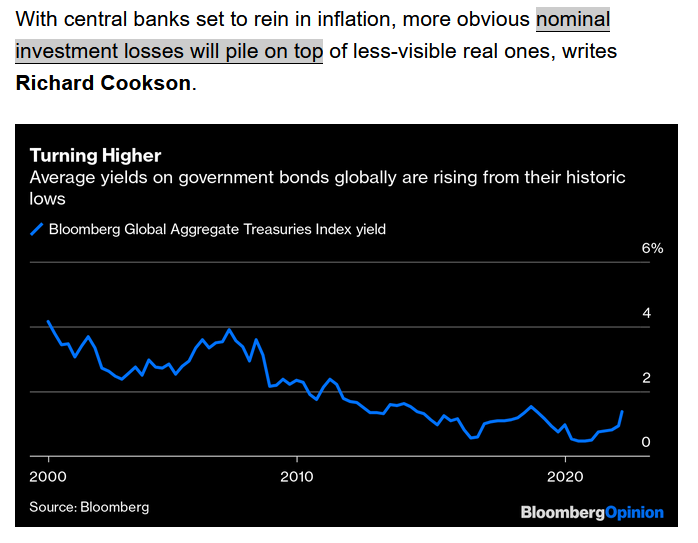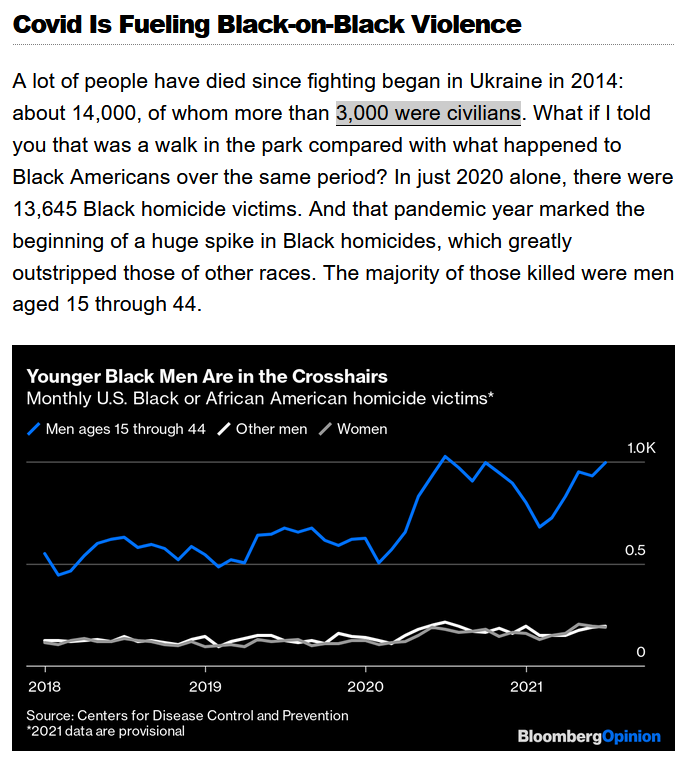|
You
can also view the message online
|
|||||||||||
 Châtenay-Malabry (FR - 92290), March 07, 2022 EFITA newsletter / 1029 - European Federation for Information Technology in Agriculture, Food and the Environment Do not miss the Virus Jokes in English and French The informatique-agricole.org site now offers you the possibility of subscribing the RSS feeds of its two newsletters See RSS feeds to implement to ensure that you continue to receive this newsletter To unsubscribe this newsletter, please contact me directely: guy.waksman(a)laposte.net if this link Unsubscribe does not work. Please note that I changed the presentation of the links that are embedded in the name of the web service. 
To correspond with me (GW), please use this address: guy.waksman(a)laposte.net To subscribe the efita newsletter (please ask your friends and colleagues to test this link) Efita Newsletters subscription Avant l'informatique : 1897 / Before computers 1897 Weekly newsletters about ICT in Agriculture in English and French Both newsletters have around 14000 subscribers. >>> Last weekly EFITA Newsletters in English (created in 1999) Efita Newsletters >>> Last weekly AFIA Newsletters in French (created more than 20 years ago in 1997) Afia Newsletters >>> Statistics for the last efita newsletter >>> Last issue of the afia newsletter >>> Last available satistics for the afia newsletter Du côté de ebbh.fr : Ukraine first, February 26, 2022 Because “first” does not mean “only”. The covid obviously did not disappear magically (And that, at least, we can do something about it…). If we could help and protect our Ukrainien friends as easily as protecting our neighbours wearing a mask! Why Vladimir Putin has already lost this war, by Yuval Noah Harari (Mon 28 Feb 2022) The Russians may yet conquer Ukraine. But Ukrainians have shown in the past few days that they will not let them hold it See theguardian.com The week where decades happened: how the west finally woke up to Putin, by Patrick Wintour (Fri 4 Mar 2022) From Germany’s shock military spending rise to sanctions unity, leaders have come together over the war in Ukraine. See theguardian.com Why Russia appears to be losing the information war to Ukraine (March 07, 2022) Moscow is increasingly using harsh tactics to control information about the war in Ukraine, such as banning Facebook and passing a law that could jail journalists and others for promoting what it calls "fake news" about its military. Chris Krebs, former director of the U.S. Cybersecurity and Infrastructure Security Agency, joined CBS News' Anne-Marie Green and Vladimir Duthiers to discuss the latest developments. See cbsnews.com Angela Davis on the power of protest: ‘We can’t do anything without optimism’, by by Simon Hattenstone (Sat 5 Mar 2022) In 1972, the former Black Panther was facing the death penalty. Five decades after the campaign for her release went global, she still believes people are the ‘motors of history’. See theguardian.com Au jardin potager, 1881, par Camille Pissaro (1830 - 1903) Future Framing (NL) > Field Trials podcast – Solving the poor internet problem How can farmers solve their poor internet connectivity issues? By getting creative and taking matters into their own hands, of course. In the second installment in Future Farming’s Field Trials podcast, Jesse Hirsh, technology strategist, futurist and livestock farmer details how people living in rural areas should not wait for large communication companies and governments to bring internet signals to their door. > Crop solutions: New barley varieties can cut costs and build greener planet New barley varieties with significantly improved nitrogen efficiency to help reduce fertiliser use and greenhouse gas emissions are on the horizon, as a result of advances made by a Western Australian research collaboration. > Rural connectivity: Case IH Connected Farm brings 4G connectivity to Brazilian farms Case IH has selected Água Boa, a Brazilian region renowned for its high agricultural productivity, as the location for its Connected Farm project. This is to bring 4G infrastructure to the region. > Electric tractors: Electric Fendt e100 goes into series production in 2024 Fendt plans to begin series production of the electric Fendt e100 in 2024. the manufacturer wants the electric e100 tractor to enter series production in 2024. > Field robots: Robotti field robot now available in Poland Vantage Polska signed a distribution agreement with Agrointelli to make their field robot, Robotti, available to Polish growers. > Field robots: Why the overall adoption rate of agricultural robots is still low In comparison with other industries the agricultural industry has been slow to digitise, according to a market research report by IDTechEx. The report also lists reasons why the overall adoption rate of agricultural robots is still – relatively – low. > Autonomous tractors: An overview of autonomous tractors for sale in 2022 If you’re looking to make your tractor, self-propelled machine or other vehicle autonomous, you have six suppliers to choose from. Factory made autonomous tractors are now available from three manufacturers. > An overview of autonomous tractors for sale in 2022 If you’re looking to make your tractor, self-propelled machine or other vehicle autonomous, you have six suppliers to choose from. Factory made autonomous tractors are now available from three manufacturers. > Automatic steering systems for farms of all sizes Retrofit kits for tractors are payback in no time. CHC Navigation invites potential dealers to apply for cooperation. We communicate openly and frequently, build mutual trust, and help generate larger gains for every dealer. See chcnav.com > Autosteer: 15 universal autosteer systems to choose from > Autosteer: New autosteer systems from CHC Navigation > Autonomous tractors: Are other manufacturers following John Deere? > Tractor swarms: $ 350,000 to develop driverless tractor swarms > Autonomous tractors: The autonomous John Deere from a farmer’s perspective: Part I > Expert opinion: Paving the path for autonomy, at last > 15 universal autosteer systems to choose from The number of universal autosteer systems to choose from has increased from 12 last year to 15 this year. Find the answers to all your questions and the prices in our updated buyers guide. > Artificial intelligence: How AI can help farmers “climate-proof” their acres According to ClimateAi, transitioning precision agriculture from reactive to predictive can help farmers maximize yield, quality, resource efficiency, and financial stability/profits while reducing GHG emissions per ton. > Machinery: New strategy CNH Industrial with focus on innovation CNH Industrial presented a new corporate strategy for the coming years. The manufacturer wants to take a leading role when it comes to innovation. > Video: Agricultural drones that you can buy! This video is part 2 of our drone catalogue series, showing drones that are available for purchase. > Spraying technology: Bayer DriftRadar automatically prevents spray drift Bayer’s integrated drift management system “DriftRadar” automatically prevents spray drift to buffer zones and zones where no crop protection agent is allowed. > Sustainability: British start-up announces hybrid powertrain for tractors Atomictractor is developing a zero emissions power unit as an OEM and aftermarket solution for tractors. It’s also developing a small tractor powered by a hydrogen fuel cell. > Crop solutions: Growing at fixed distances with Controlled Row Farming Amazone, in collaboration with Agravis and Schmotzer, is investigating a new arable method in which crops are grown in fixed rows. > Trimble's Ultimate Guide to Precision Ag See futurefarming.com Les rameurs de pois, par Camille Pissarro (1830 - 1903)
Can Precision Agriculture Really Help Growers Know Their Crops Better? Here's an inside look at how three agtech companies are using distinct approaches to offering imagery services for fruit and nut growers. See precisionag.com UK Tech Partnership to Launch World-First Service Letting Farmers See Through Clouds The ClearSky service feeds radar data into a deep neural network to derive the view of a field that a satellite would see if there were no clouds blocking its camera. See precisionag.com Osny, Lavoir et Petit Moulin (moulin de la Roche)", 1884, par Camille Pissarro (1830 - 1903) CNH Sees Revenues Rising to 2024 As New Plan Focuses on Precision Agriculture After buying Raven last year for $2.1 billion to bolster its position in precision agriculture and autonomy, CNH will now focus on "disciplined" M&A activity. See precisionag.com Indonesian ag marketplace AgriAku raises $6m to democratize farmer access to inputs, AFN, by Jack Ellis AgriAku, an online ag marketplace looking to democratize and streamline the crop input supply chain in Indonesia, has raised $6 million in pre-Series A funding. Go-Ventures, the VC arm of Gojek – the pan-Southeast Asian transportation, food delivery, and payments ‘super app’ — led the round. .../... “The idea of the marketplace is that it democratizes what it means to be a seller and a buyer,” AgriAku co-founder and president Irvan Kolonas told AFN. The aim is to get better prices for both sides of the trade by increasing the number of available products at the toko tani, widening the pool of prospective buyers and sellers, and making it easier for them to transact, he added. .../... See agfundernews.com Hay Making at Éragny, par Camille Pissarro (1830 - 1903) Verdant Robotics unveils ‘multi-action’ tech for specialty crops that handles spraying, weeding & more, AFN, by Jennifer Marston (feat. Verdant Robotics) Verdant Robotics has officially launched its platform that combines data analytics and crop applications such as spraying and weeding into a single farming implement for specialty crop farmers. The company says its tool delivers better outcomes for those farmers, from bigger yields and cost savings to a better view overall of what’s happening on the farm. …/… See agfundernews.com Les paysans, de Camille Pissarro Get ready for cyber-attacks on global food supplies, Wired, by Emily Orton Unless proper security systems are put in place, key sectors of the food industry are vulnerable to attack. Food and beverage manufacturing plants are the giants of the global food industry, transforming raw agricultural materials into products for mass consumption around the globe. In 2019, meat alone accounted for around 24 per cent of all food and beverage shipments in the US. That’s why last year’s cyber attack on JBS, one of the world’s largest meat processors, had such an impact. It supplies nearly one fifth of the meat consumed in the US and many shops experienced shortages as the company worked to recover. With such a small number of firms comprising most of the food supply chain, shutting one plant down has a direct impact on a much wider population. .../... See wired.co.uk Part de la population utilisant l’Internet / Share of population using the Internet Inflation des prix aux USA : exemple de la bière et de l’aluminium / US Price inflation: Beers and Aluminium (Bloomberg Newsletter) Wheat futures are soaring. Food prices could be next, CNN, by Danielle Wiener-Bronner & Vanessa Yurkevich, CNN Business, March 1, 2022 Russia's attack on Ukraine is causing wheat prices to spike, exacerbating already high food prices. Wheat futures were up about 5.35% Tuesday, reaching prices not seen since 2008. The higher prices make wheat more expensive for food makers, who will likely pass those costs on to consumers. Ukraine and Russia together are responsible for about 14% of global wheat production, according to Gro Intelligence, an agricultural data analytics firm. The two countries supply about 29% of all wheat exports. Prior to the Russian invasion, Ukraine was on track for a record year of wheat exports, while Russia's wheat exports were slowing, according to the US Department of Agriculture. …/… See edition.cnn.com Cueillette des pois, par Camille Pissarro
Canada approves world’s first plant-based Covid-19 vaccine, AFN, by Jennifer Marston - Canadian regulators have approved Covifenz, the world’s first Covid-19 vaccine developed using plant-protein technology. Local biopharma company Medicago developed the vaccine. - In Covifenz, plant-derived, non-infectious particles mimic the virus while an adjuvant — developed by pharma giant GlaxoSmithKline — boosts the immune system response. - The two-shot dose, approved for adults aged 18 to 64, was found to be 71% effective in clinical trials against Delta and Gamma variants of the virus. It also has some efficacy against the Omicron variant, for which Medicago is developing another version of its shot. See agfundernews.com Consumers unwilling to pay premium for regenerative agriculture claims, survey finds, 24-Feb-2022 By Asia Sherman, Food Navigator New research shows that US consumers are less familiar with the concept of regenerative agriculture than other food production methods, and most are not willing to pay premium for brands making these claims. See FOODNAVIGATOR-USA.COM
When www.humanprogress.org launched on October 30, 2013, the launch was accompanied by an essay I penned in the Reason magazine titled, “Human Progress: Not Inevitable, Uneven, and Indisputable.” By Marian Tupy, editor of HumanProgress.org In the article, I briefly described the progress that humanity has made over the last two hundred years or so. Empirical evidence, I argued, clearly shows that compared to the previous 300,000 years of Homo sapiens’ existence, our recent advancement has been staggering. In merely 0.08 percent of our time as a separate species, we became vastly richer, healthier, and more knowledgeable. The average global income, which was practically stagnant for millennia, rose by a factor of 14. Instead of dying at the age of 30, we can look forward to living into our late 70s. Widespread illiteracy, ignorance, and superstition have been, to a great degree, replaced by a more scientific and rational outlook that helped us to eliminate ancient diseases, like smallpox, create the iPhone, and send people to the moon. Above all, we became more moral. Two hundred years ago, slavery was widespread; women were without the vote or equal protection under the law; homosexuals were imprisoned or worse; people of different religions were routinely discriminated against; the circle of empathy did not extend far beyond the family – let alone to other nations, races or, for that matter, animals, which were tortured for fun. And that was the “moral situation” in the most civilized countries on the planet. What a vastly different and more moral world we have created! In the United States, Americans elected a black man to the nation’s highest office. In much of Europe, women preside over many a government. Gay youths take their same-sex partners to the prom. Hundreds of billions of dollars flow from rich countries to the poor to alleviate hunger and disease. Cruelty to animals is frowned upon or punished outright. But I also noted that human progress was uneven and far from inevitable. Gale Pooley and I recently revisited that subject in Superabundance, which will come out in August. We wrote, The “line” of progress is jagged, not smooth. Western Europe, for example, experienced tremendous economic, political, technological, scientific, and medical advances during the century that separated the end of the Napoleonic Wars (1803-1815) and 1914, only to descend into the barbarism of World War I and World War II. Yet Europe rebounded, just as it did after the fall of Rome and the subsequent Dark Ages. There are, in other words, rational grounds for cautious optimism. But optimism should not be confused with inevitability. We could yet destroy our civilization through human action, such as nuclear war, or watch helplessly as an asteroid hurls through the sky and wipes out most of the life on Earth. When we wrote those words, we could not have imagined that Europe, the continent of my birth, would yet again be mired in a bloody war. The long-term decline in all types of violence – including homicide, genocide, and international conflict – is very real and has been part and parcel of moral progress. The savage invasion of Ukraine by the Russian military does not negate that long-term trend, but it is a reminder of the fragility of human accomplishment. With every fiber of my body, I still believe that the future of humanity will be ever better. But, as we also noted in Superabundance, it will never be perfect. Progress does not mean that we will ever reach a paradisiacal end state where everything will be optimal for everyone everywhere. New problems will arise, and they will have to be solved, however imperfectly, by future generations. As such, the world will never be a perfect place. After all, the beings who inhabit it are themselves imperfect. As the German philosopher and advocate of gradual human progress Immanuel Kant (1724-1804) observed in 1784, “From such crooked timber as humankind is made of nothing entirely straight can be made.” The Russian onslaught on a peaceful people confirms the crookedness of human nature, but our flaws do not negate our ability to create beauty, prosperity, and peace. As we watch the conflict in Ukraine unfold and spare a thought for all the other conflicts in the world today, let us remember the causes of progress – including reason, science, freedom, and humanism. Let us be grateful for what we have and recommit ourselves to the defense of the values and institutions that have made liberal societies the best places on Earth. See humanprogress.com Demande d'aluminium en hausse / Ever-higher demand of aluminium (Bloomberg Newsletter) Ce sera sans doute difficile mais nous pouvons, au moins en partie, nous passer du gaz russe / It will be difficult but we eventually will not need the Russian gas (Bloomberg Newsletter, February 2022) Au RU, le vaccin anti-covid a soigné les hôpitaux / In UK, the anti-covid vaccine saved the hospitals Publicité : la voiture électrique domine la voiture à essence / Advertising: the electric car dominates the gasoline car
Violence : les
noirs contre les noirs (rien n'est simple) / Black people against black
people (nothing is simple), source : Bloomberg Newsletter
The Mexican Jew (Jewish joke) The Mexican Jew dies and goes to heaven. And God is waiting there. The Mexican Jew says, “Oh, I never won the lottery. You never allowed me to win it.” He delivers a whole diatribe about not winning the lottery. And God says in Spanish - in a very Mexican Spanish: “Well, you didn’t win the lottery because you never bought a ticket.”
The distribution of this efita newsletter is sponsored by vitisphere.com Please, contribute to the content of your efita newsletter, and advertise your events, new publications, new products and new project in this newsletter. Without your support, it will not survive! Contact: Guy WAKSMAN E-mail: guy.waksman(a)laposte.net To read this newsletter on our web site See Efita The archives of this newsletter See Efita About the EFITA mailing list You can use the efita moderated list (> 15000 subscribers) to announce any event / product / web site / joke (!) related to IT in agriculture, environment, food industry and rural areas. If you want to subscribe a friend, please fill in his form. If you do not wish to receive our messages, please fill in the following form... |






